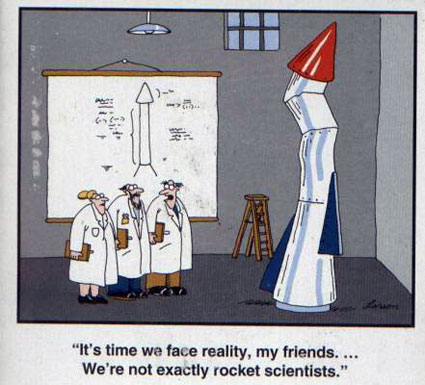So what do you do about it? Everyone and their dog can point out the world’s problems, but what sort of curative action do they take?
It seems like there are several routes folks nearly always follow, and these go for ANYONE trying to change the world. They can be divided up by how far-reaching their influence is. Keep in mind here that I am generally talking about religious and cultural change.
- National/State level – Political activism. Get out the vote. Campaign support. Write your congressman.
- Local/Regional level – Congregational and parish ministries and services. Build up church programs.
- Family level – Focus on raising and educating your (many) children, keeping your marriage and family together.
- Highly personal level – Quietism. Join a monastic order or the peace corps. Traveling evangelist types.
- Forget it – Who cares? Just consume as much as you can get your hands on.
Now days the most popular way to change the world is to “raise awareness!”. This, as many have pointed out if it wasn’t already painfully obvious, is often a pile of crap. It’s form over substance. Then I had to stop myself and ask, is writing a book “form over substance” as well? You can raise awareness in a very shrill way, or you can do it in a calm, wise, reasoned way, even engaging other ideas head-on in the academic and public realm. Hopefully, writing a GOOD book on the subject really can spur others. I hope so. Putting on another bumper sticker won’t do much except make you feel better about yourself for a minute. Much more useful would be to lead by example yourself.

Looking back to this list of ways to change the world, at the national level we have organizations like the Moral Majority or Dobson trying to push state and federal politics in a certain direction. Pros: The potential to effect sweeping changes backed up by law enforcement. Cons: Waking up one morning to find yourself in bed with big-money politicians, most of whom don’t actually fear God at all. Oops.
At the local level, we have church and para-church ministries. Soup kitchens, crisis pregnancy centers, youth programs, foreign schools and orphanages, Christian schools, Alcoholics Anonymous and the like, money-management classes, etc. Pros: A much more direct effect on people you actually know and your own community. Cons: Has been proven to frequently make the church organization, especially if it is a mega church with a lot of resources, the central focus of our time and energy. This, it turns out, brings with it a host of problems that I’m not going to go into here.
I can personally think of a LOT of individuals (myself included) who have largely abandoned politics and even ministry organizations and are instead pouring our time, energy, and creativity into our family. This usually means first HAVING lots of kids, then raising them well, often homeschooling them, abandoning careers and potential career advancement to spend time teaching and playing with them. Abandoning some hobbies in favor of theirs. Family worship. Don’t neglect your marriage. Don’t volunteer too much at church – that might mean zero volunteer work, depending on the context. Muslims have been accused of taking over Europe with this technique. Maybe. The same could be said for Christian conservatives in America. Someone might be saying it more in 50 years. Pros: Stability of the core God-husband-wife-family unit, upon which a great Cathedral of other things (see above) can be built. Cons: Like anything, it can backfire real bad if done in a foolish manner. Outsiders are NOT qualified to make these judgments. I could go on and on about this one.
There is always something going on at the highly personal level. This is your spiritual life, your internal life, the part nobody sees. It is your thoughts, your prayers. The fruit of the spirit. Anyone following God is going to be “working” on this stuff to some degree all the time. Advocates of personal piety have often pushed this as the only way to make anything happen at all. The world gets holier one person at a time. It comes back to the great dilemma of sociologist: Is a community a living organism of it’s own? Or is it just a collection of individuals? Whole books are still being written about this. Whether you think Constantine was the worst thing to ever happen to Christianity (or not) will provide some guidance as to where you stand on this.
The final one on the list is simply to do nothing. Make as much money as you can. Advance your career as much as you can. Buy as many cool cars and iPads and vacations as you can swing without getting into trouble with your boss or the bank. If you like your wife, than treat her just nice enough that she won’t leave you. If you later decide you don’t like her anymore, then ditch her. Have a couple of kids if you think that will make you happier. Don’t be a jerk because it’s nice to have some friends. Go to church sometimes if if will help you feel better. There are some meds for that too. Just do your thing. Sure, the world has problems, but they aren’t your problems.
What is really going on is that every “cure” involves two or more of these strategies, though there is usually one sector where most of the attention is focused.
In part three, I’ll talk about what sometimes fills the void in the event of a short or insufficient cure.
